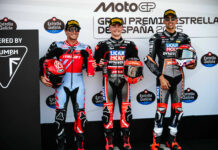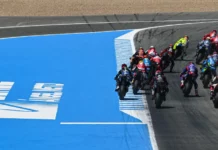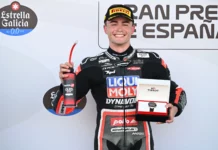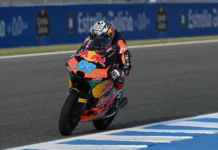Copyright 2001, Roadracing World Publishing, Inc.
But What Does It Take To Be A Pro Race Mechanic?
By David Swarts
In recent weeks, many of the top AMA professional road racing teams finalized their rider line-ups for the 2002 season. But despite the fact that the AMA Superbike series has seen a reduction from 17 factory or factory-supported bikes in the 2001 Superbike field to only 9 for 2002, there are still several top mechanic positions available in the AMA paddock. As of the Daytona tire tests December 10-12, the following positions still needed to be filled:
Graves Motorsports Yamaha (for rider Damon Buckmaster):
Formula Xtreme lead mechanic and assistant mechanic
Kawasaki Road Racing Team (for rider Tony Meiring):
600cc Supersport lead mechanic and assistant mechanic
Bruce Transportation Group Honda (for rider Jake Zemke):
600cc Supersport mechanic
Bruce Transportation Group Honda (for rider Alex Gobert):
Formula Xtreme mechanic
“One of the most important things is experience,” said Graves Motorsports Yamaha team owner Chuck Graves when asked what he will look for when searching for Buckmaster’s new lead Formula Xtreme mechanic. “Mechanics that have been riders and have experience riding motorcycles typically are always a good development guy.
“But obviously we’re looking for somebody that Damon fits well with. The most important thing is finding a mechanic that works well with the rider. Once you’ve established that, then we make sure that we find mechanics that can work under him. Clearly, all of those requirements have to fall in line with what our requirements, with the racing team as a whole, is. It’s really easy to make a mistake and hire a wrong guy.
“I’ll sit down with Damon and write up a list of guys that he’s interested in. I get back with the Team Manager, Jeff Carter, and then we make a decision, ‘Can this guy fit in the slots that we want?’ And if that’s the case and everything can make sense, then we move forward from there. What we look for is experience first of all, understanding what happens on a racetrack at that level. That comes from being a rider or being a mechanic. It takes a lot of years of just being a mechanic to learn it. If you’re a rider that has some mechanical ability it comes a lot faster.”
For the view from the other side of the fence, we contacted Team Valvoline EMGO Suzuki’s Todd Fenton, current 2002 lead mechanic for Tom Kipp and his Formula Xtreme and 600cc Supersport bikes. Fenton was a rookie during the 2001 season while tuning for Grant Lopez.
“In my particular case, this was a hobby,” said Fenton when asked how he became a top-level AMA mechanic. “I don’t want to say that everything I learned was self-taught, but I never had any official schooling when it comes to motorcycle mechanics. For four years, I was a club racing mechanic and being there year-in and year-out, being there and doing it, and learning and talking to people and getting familiar with a racing motorcycle as opposed to a street motorcycle, which they are different animals when it comes to working on them.
“I had a mutual friend with Keith Perry (Team Valvoline EMGO Suzuki Crew Chief). Last year, my friend was at dinner with Keith and he was talking about hiring more mechanics and more riders and expanding their shop. My friend threw my name in. At the Race of Champions in 2000, I went to Keith and told him what I knew and what I didn’t know. I came down to the (Team Valvoline EMGO Suzuki) shop a few days later and checked things out for a couple of days and talked a little more and that was basically it.
“This opportunity to work with a team just happened to pop up. I came in with a strong base of knowledge and let Keith Perry and Barry McMahan (two-time AMA Mechanic of the Year, 2000 750cc Supersport, 2001 Formula Xtreme) and everyone else here kind of add on to that knowledge and mold me, so to speak, into a better race mechanic.
“A lot more attention to detail maintenance-wise, a lot more tire changing,” Fenton said are the biggest differences from his days as a club racing mechanic to being an AMA professional wrench. “At this level it is different because it is a job, it is a profession. At a club weekend, you can usually make it through on one set of tires and you’re not changing oil. Basically, maintenance is the biggest difference, especially with a Formula Xtreme bike with the specialty equipment on there. You’ve gotta keep on top of it to make sure it’s running 100%.”
Professional Racing Crew Jobs Still Available
Professional Racing Crew Jobs Still Available
© 2001, Roadracing World Publishing, Inc.






